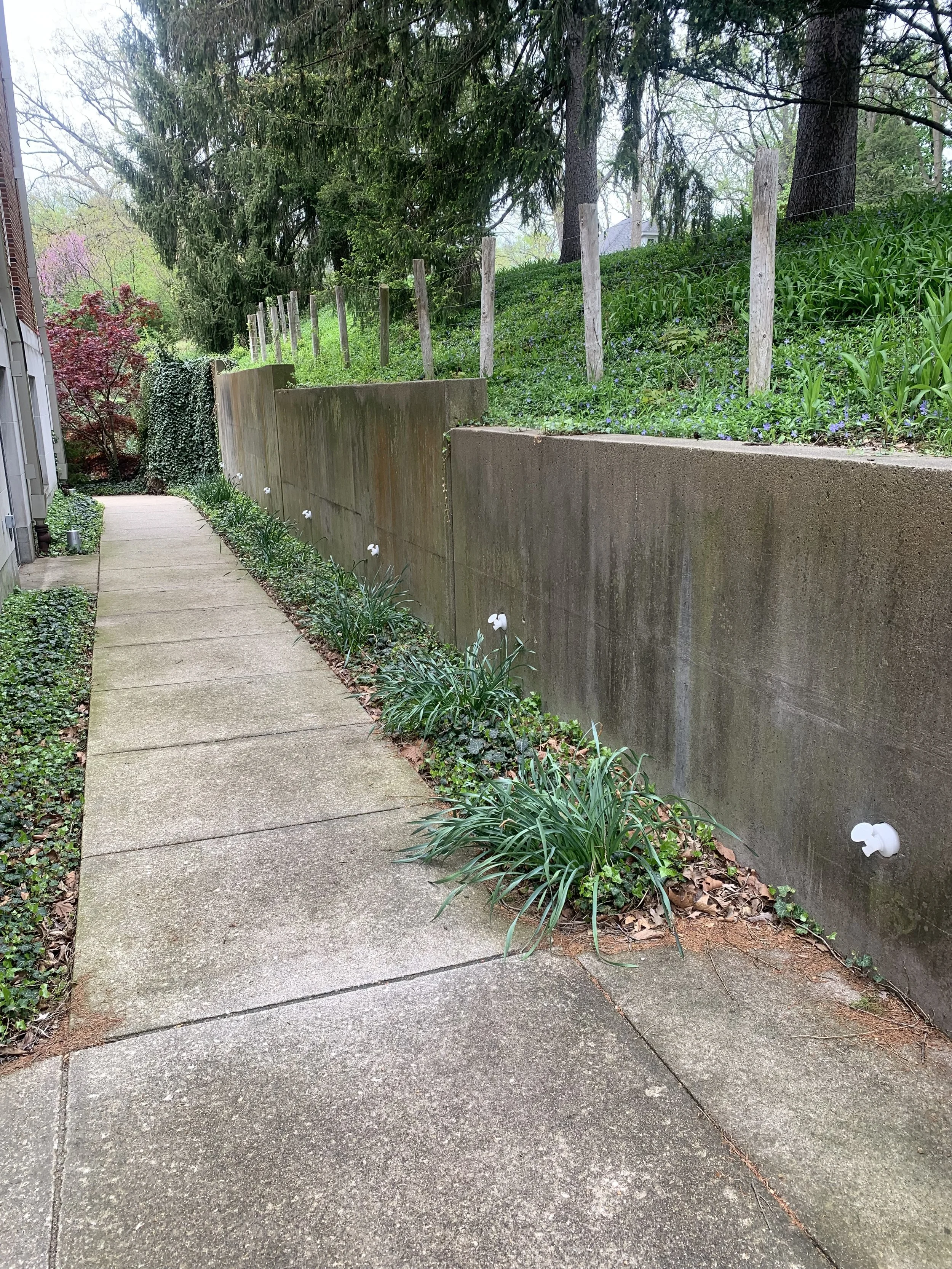Ephemeral Body
This won't last is a sentiment of letting go, forgiveness, and appreciation.
This ephemeral collection of water bowls was created and installed to be momentarily witnessed, then washed away. Each form is pinched, molded, and sculpted to hold the gesture of the very moment it was made. Like a fleeting moment, these ephemeral bodies are not meant to last, they exist briefly, are filled with water, then dissolve.
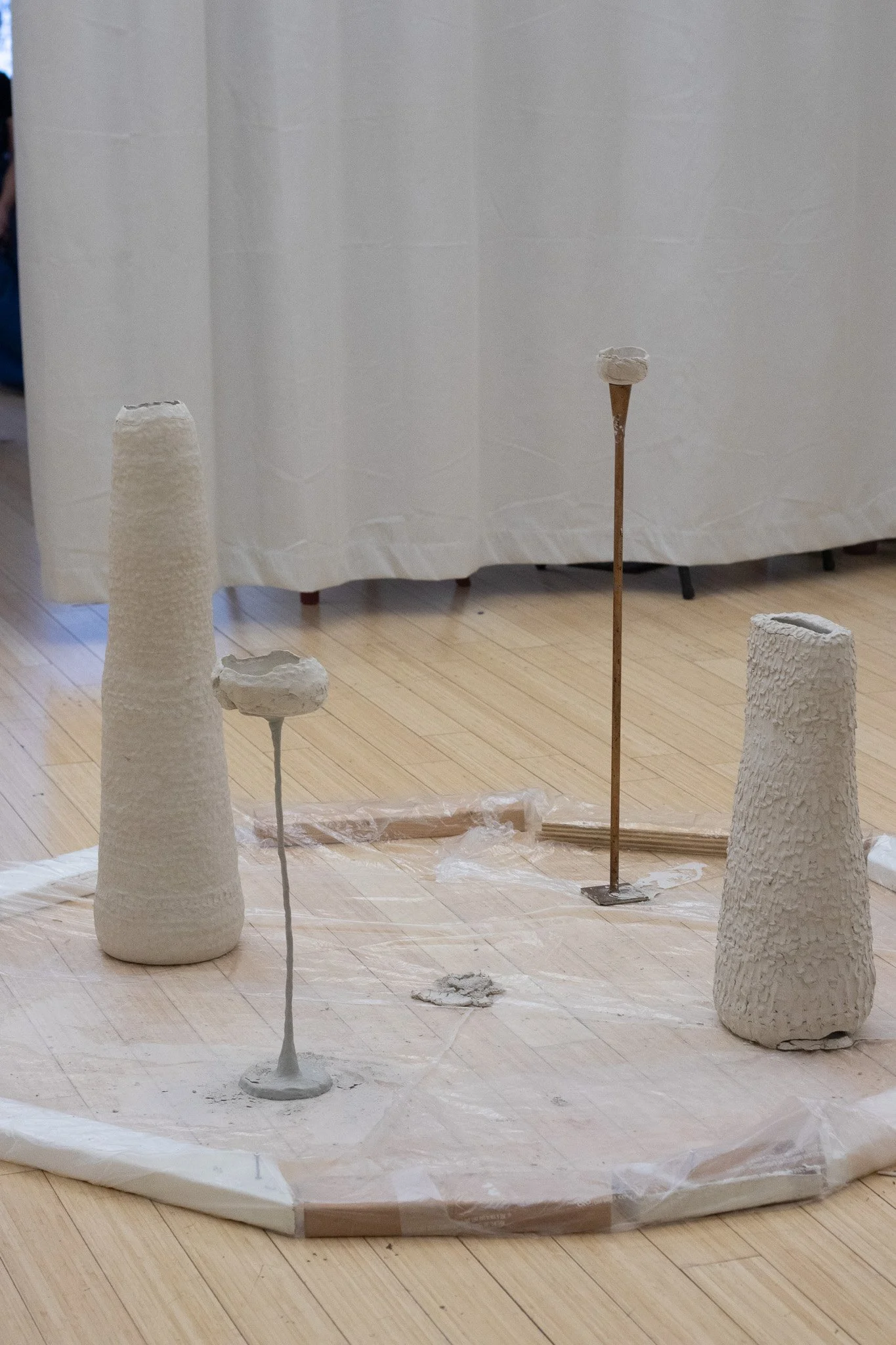
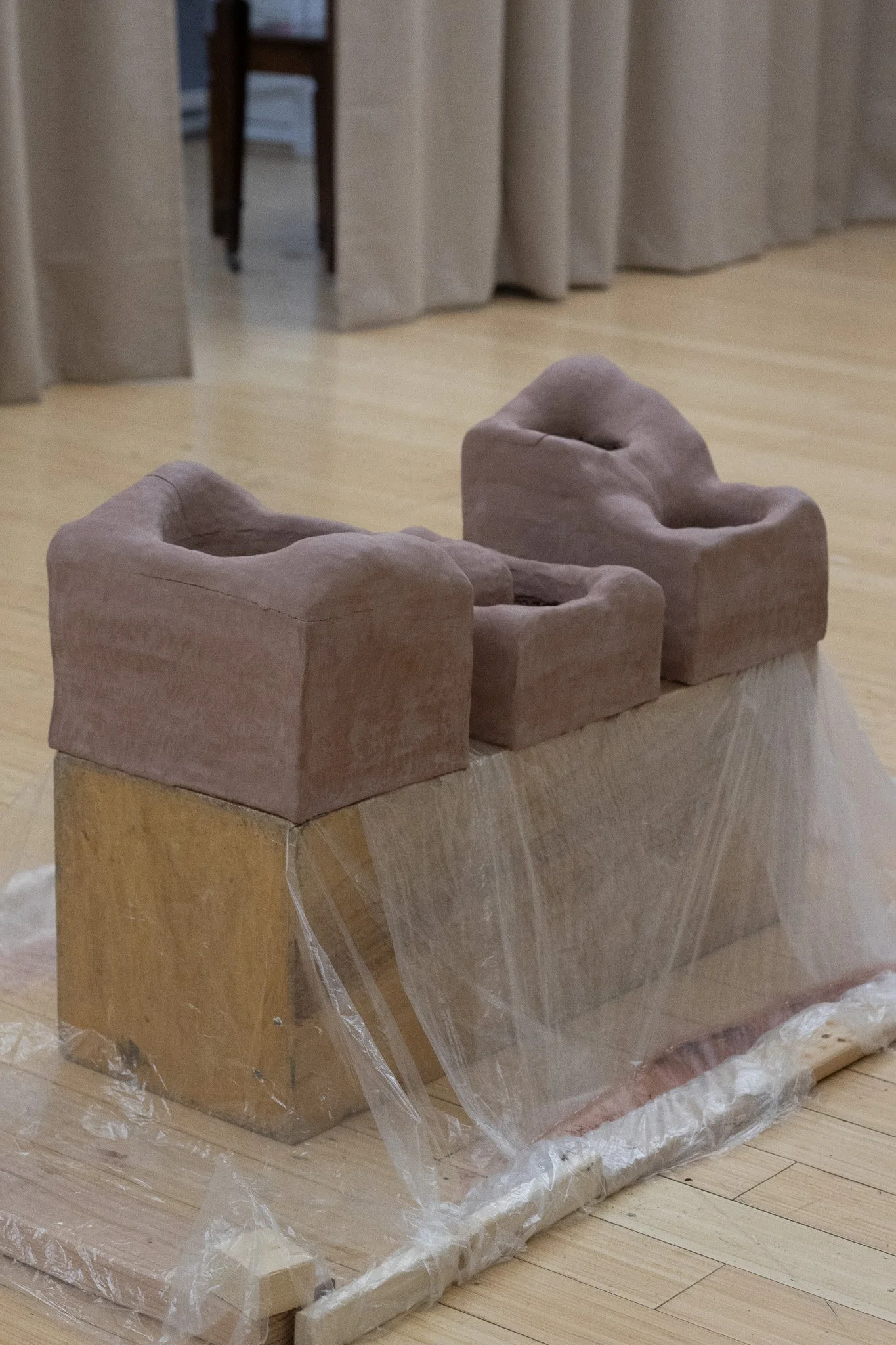

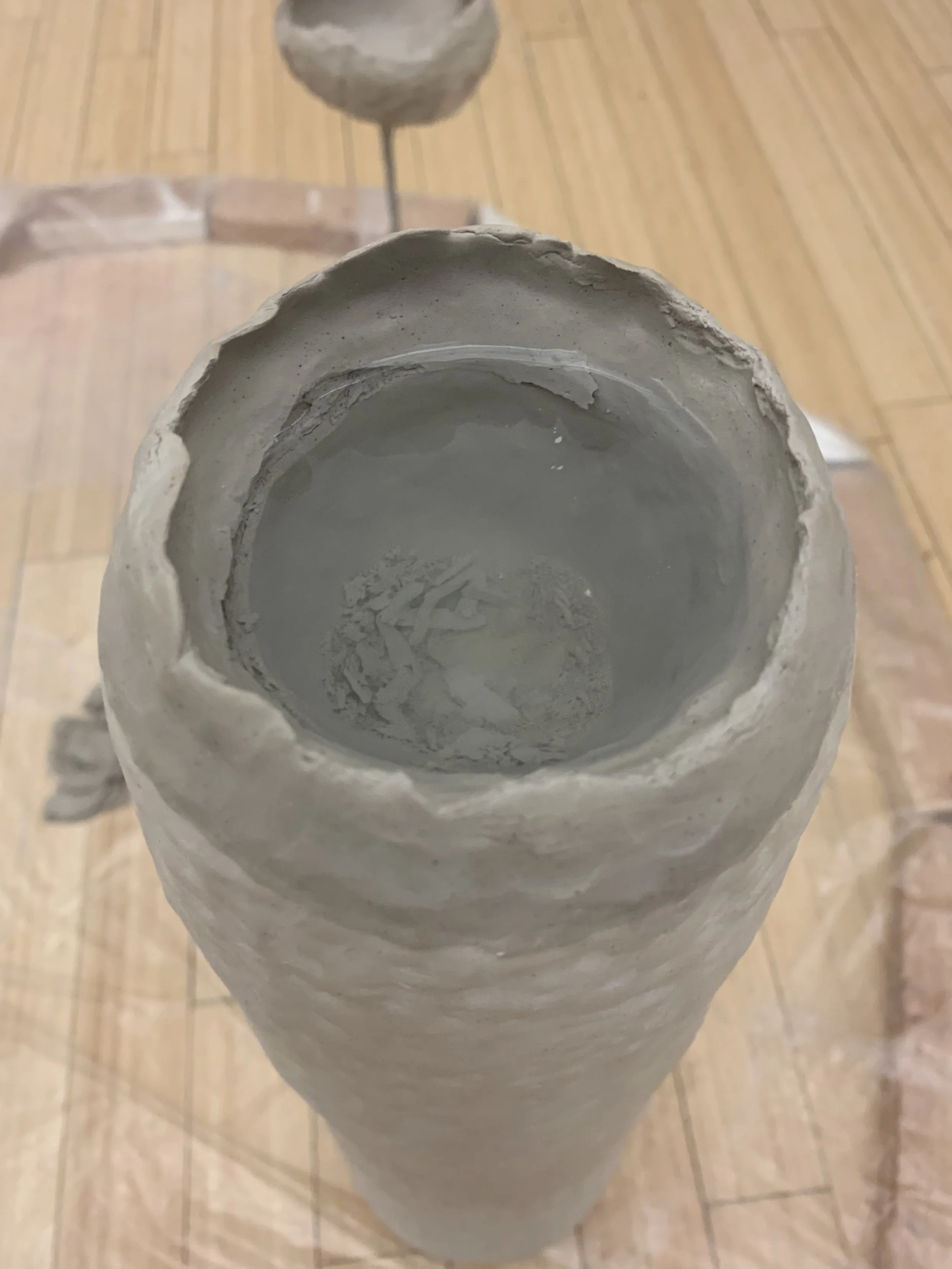

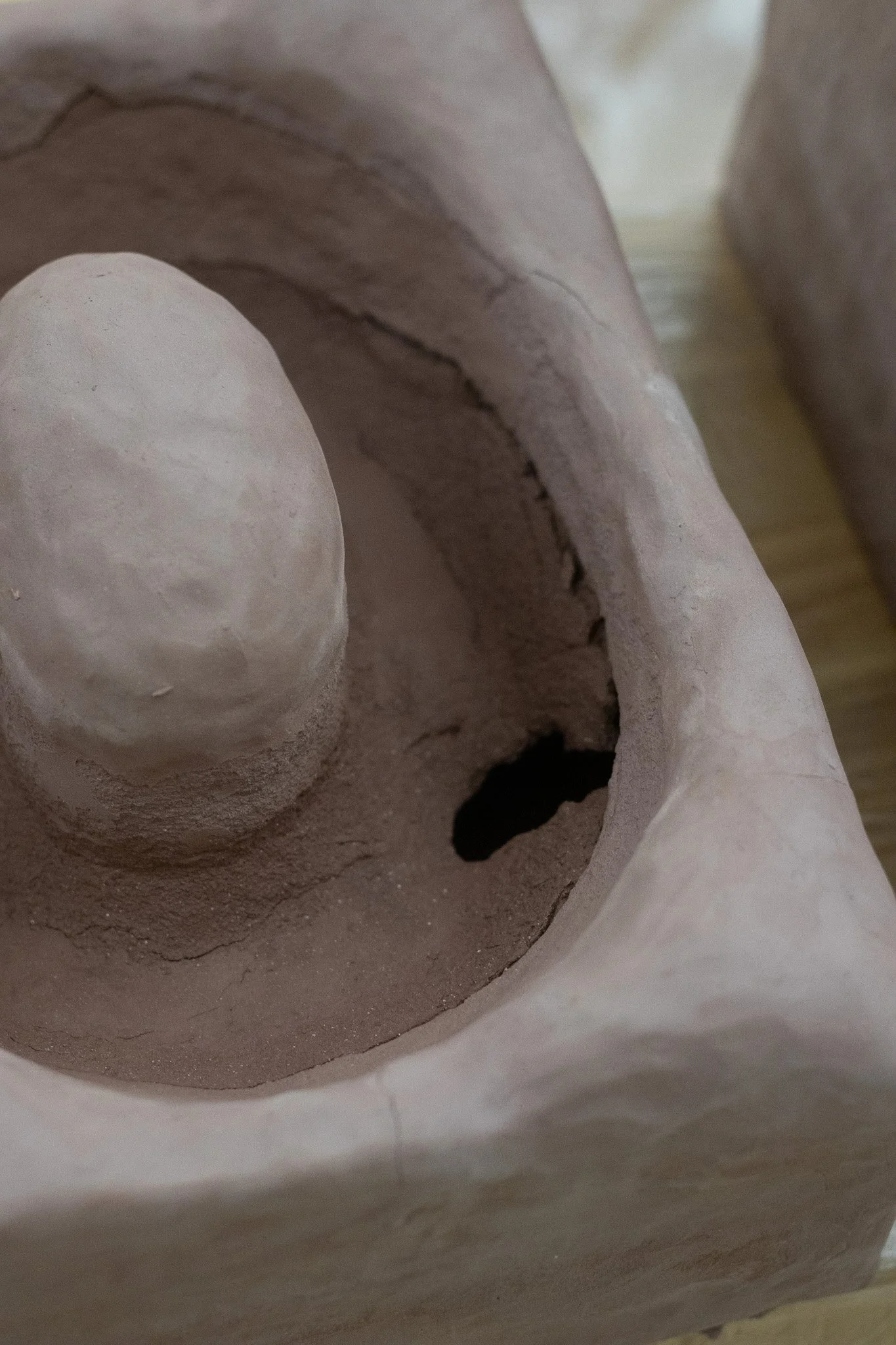
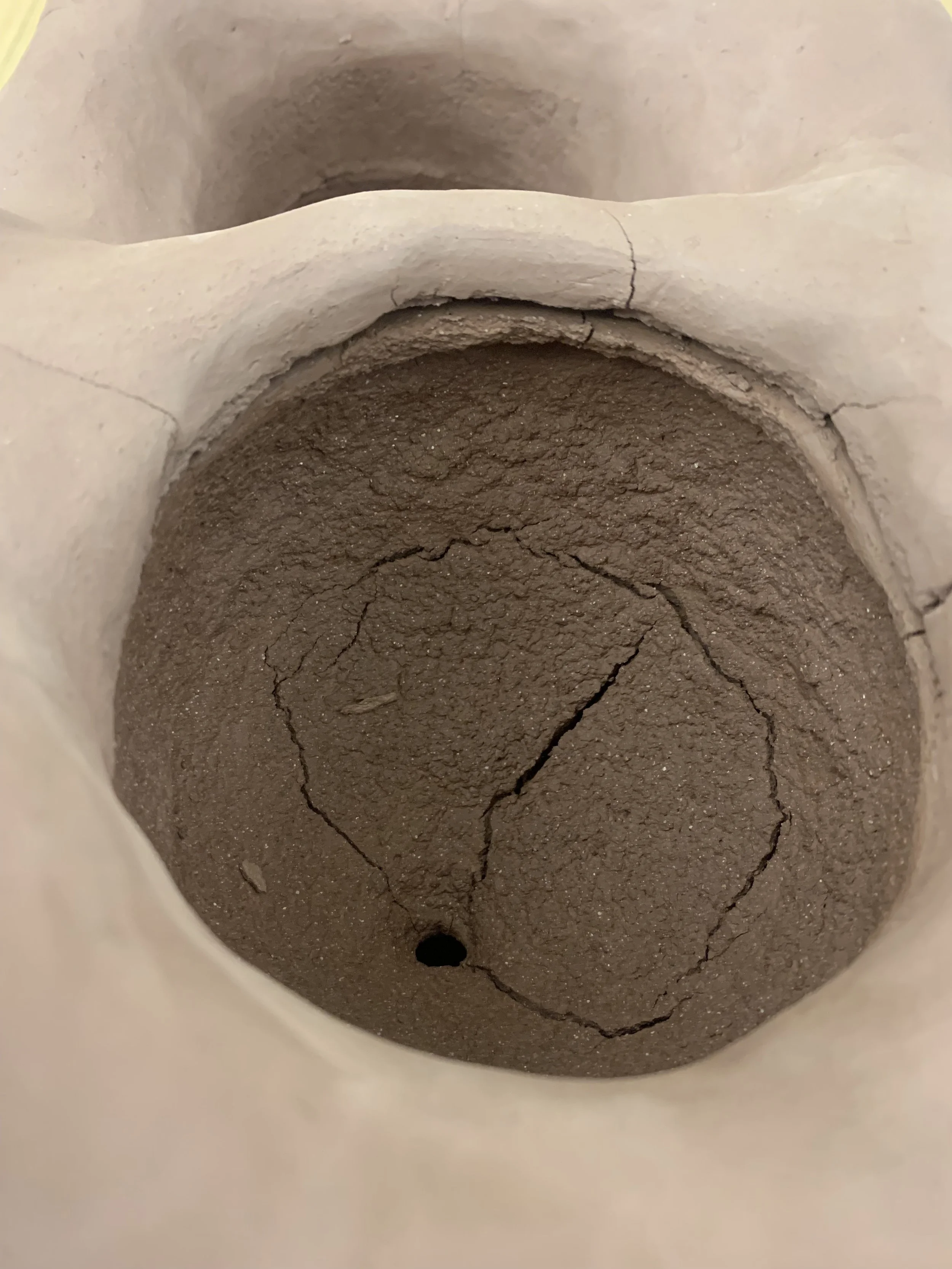


The Myth of The Uterus
Chartreuse is a vivid, attention grabbing, gender-expansive color reserved for fashion, interior design, and elixirs. To reimagine the uterus as it truly exists in the body, not as a diagram from a page, chartreuse introduces both vitality and unease, mirroring the contradictory experiences many people with uteruses carry: of life, of medical misunderstanding, and improperly rendered bodily depictions. Referencing its presence in genderqueer and nonbinary flags, green connects to identities and bodies that resist binary narratives, illuminating peripheral identities. Through form and color, The Myth of the Uterus brings gender identity into view and engages with misleading depictions of reproductive anatomy by presenting an abstracted view of the uterus as it truly exists: compressed, shifting, and alive within the body.


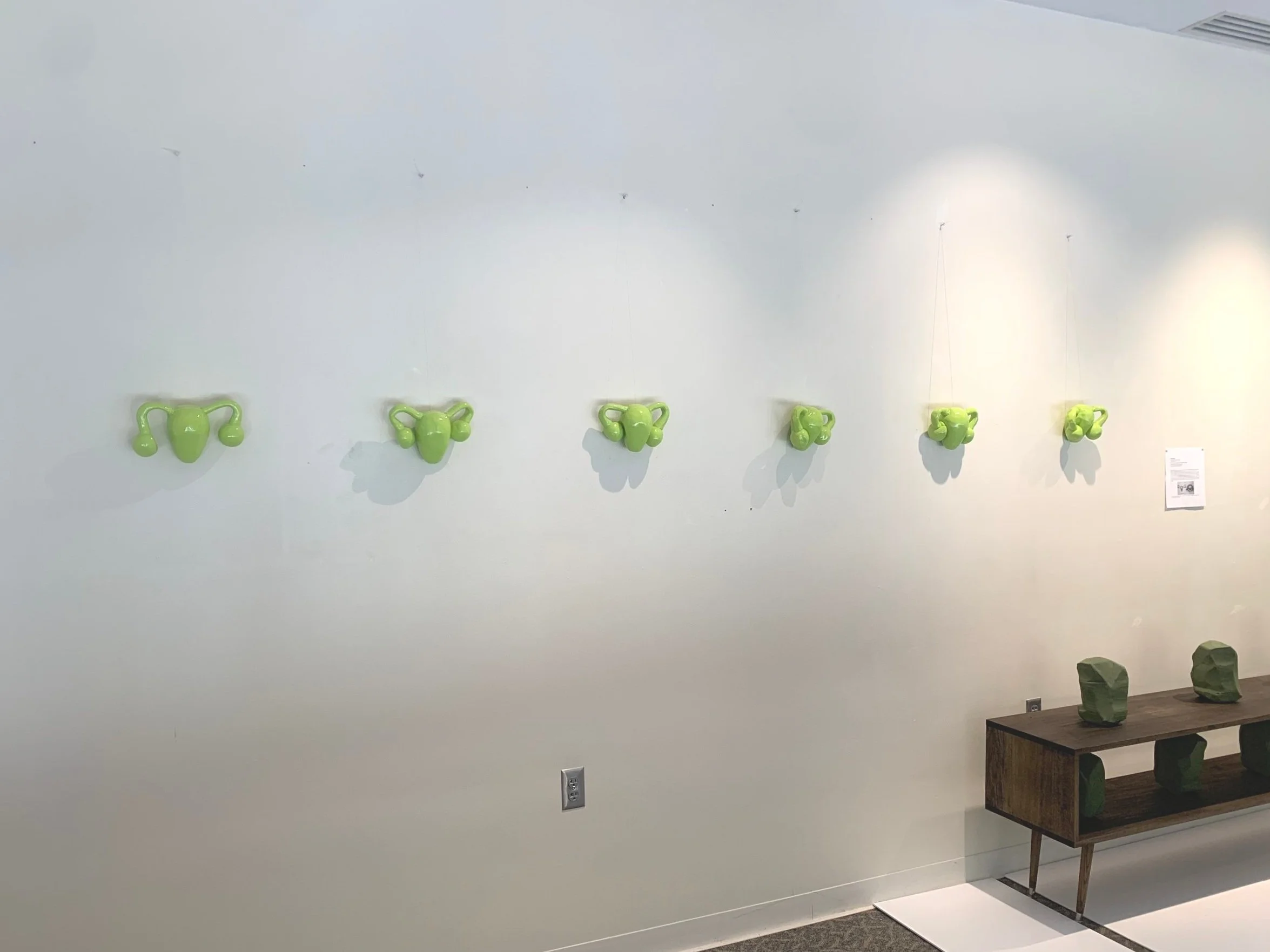
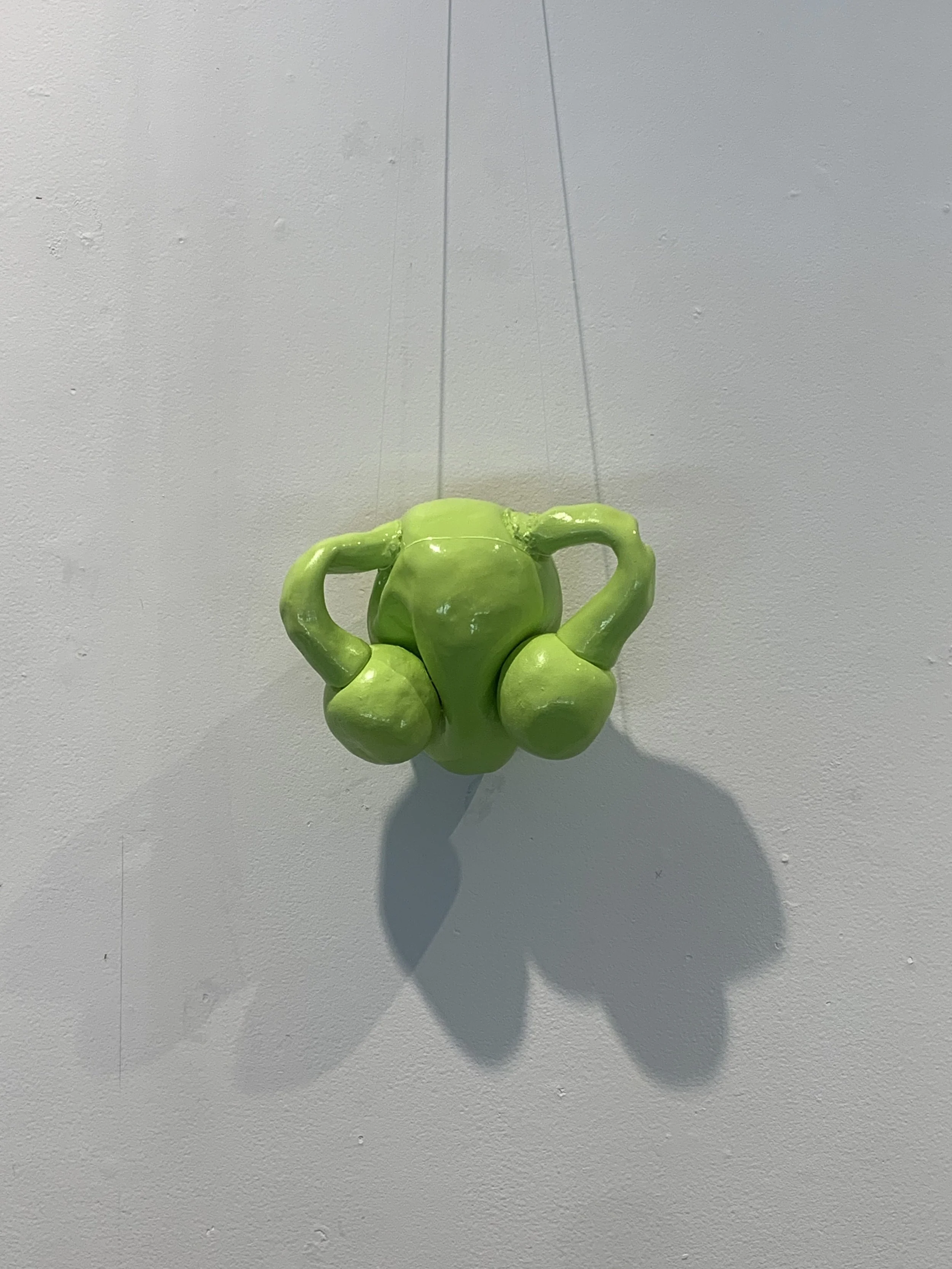
Fill The Void
The water that flows from our faucets goes through a process of chlorinate, fluoridate, and frequent testing. Nearly half of this processed water is used for landscaping. An alternative source of landscaping can be sourced from greywater and rainwater catchment systems. These collection tactics represent political, environmentally conscious, and socially driven alternatives that challenge the logic of privatization, state control, and municipal water provisions.
What does it mean to turn the faucet? And what if you turned the faucet and nothing came out?
In this piece, seven faucets replace seven drainage holes in a concrete wall built into a steep landmass. These holes were designed for proper rainwater irrigation, to allow efficient water runoff to funnel to the ground. The stark white faucets that now occupy these holes call attention to the often overlooked potential of rainwater collection, an act that, in the context of contemporary water politics, becomes conspicuously radical. Through the logic of water privatization, rainwater is considered an exclusive property belonging to municipal providers. Collecting rainwater, under this privatized logic is theft.
Who will punish stolen water? Who owns the rain?


